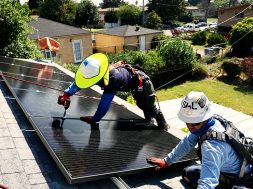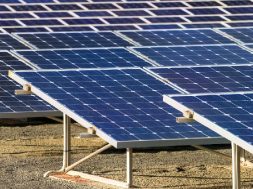
Solar power to be harnessed to power agricultural borewells
The Telangana New and Renewable Energy Development Corporation is gearing up to replace few thousands of traditional agricultural pump sets with solar powered ones in the coming days.
The decision was taken after successfully implementing a pilot project in Khammam district where 90 solar powered pump sets had been commissioned on a pilot basis. The State had received funds from the Union Ministry of New and Renewable Energy for installing 4,223 pump sets in different parts of the State during the first phase, of which 90 pump sets had been installed in Khammam district to test the results.
Local conditions
“We have conducted studies over the performance of the solar pumpsets and the changes needed to suit the conditions in Telangana,” corporation Managing Director A. Sudhakar Rao told The Hindu. The pumpsets set up on experimental basis were proved efficient in drawing ground water from depths of over 200 ft.
Centre sanctioned 5,084 solar pump-sets to Telangana for agriculture and drinking water, the State has availed only 90 solar pump-sets so far. The installation of these pumpsets had been on the slower side so far because the corporation was working out modalities relating to operation of these pumpsets in the Telangana region where ground water was available at a depth of over 200 ft in major portion of the State.
Central subsidy
Further, the pump sets sanctioned by the Union Ministry of New and Renewable Energy were of 5 HP capacity while the actual capacity utilisation at the ground level was found to be close to 7.5 HP owing to the depth of the water. But since the pilot project had given successful results in operation, it was decided to deploy the remaining allocated pump sets across the State. “The Central Government will give a subsidy of ₹ 1.6 lakh on each pump set costing around ₹5 lakh,” he said.
In addition, the Government had decided to use solar power for operating the lift irrigation projects and the Union Ministry had given its in principle consent for utilising around 1,000 MW power in this regard.











